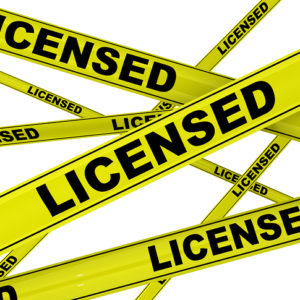This article first appeared at JBartlett.org.
As Gov. Chris Sununu moves to undo the state’s overly burdensome occupational licensing regime, legislators are trying to add more licenses.
Last Wednesday, the House voted 210-166 to require a state license for the practice of music therapy.
Why? Health insurance.
Supporters said New Hampshire needs to license music therapists to ensure that patients can be reimbursed by their health insurer when they purchase music therapy treatment.
It’s not that music therapists don’t practice — and practice safely — in New Hampshire. They do. It’s purely a matter of insurer reimbursement.
But as Rep. Carol McGuire, R-Epsom, pointed out, that’s hardly a reason to create an entire licensing bureaucracy for one therapeutic specialty.
“…it is not the best use of our time and our state resources to create a separate statute, a separate license, a separate registration board, separate rules for each tiny specialization in the therapy field,” McGuire said.
House Minority Leader Matt Wilhelm, D-Manchester, argued that licensing music therapists would increase the supply of music therapists.
“New Hampshire is in the middle of a mental health crisis and the need for therapists is an urgent need,” he said. People who need this type of therapy “could benefit from additional therapists.”
“…if there were certified music therapists and licensed music therapists,” he said, “it would increase the amount of people that would have access to care and high-quality care….”
But research on occupational licensing finds that licensing requirements tend to reduce the supply of practitioners and drive up prices.
Only nine states license music therapists, according to the Certification Board for Music Therapists, a national organization that promotes excellence in music therapy.
If House Bill 532 becomes law, New Hampshire would be the only New England state to require a license to practice music therapy. Rhode Island registers, but does not license, music therapists, and Connecticut requires certification, but not a license, for anyone who uses the title “music therapist.”
National certification through a respected trade organization offers a simple method for consumers to seek outside expert verification of music therapist credentials.
In fact, supporters did not even make a health or safety argument for the license. There were vague references to “quality” therapists, but no one argued that the public is in danger from unlicensed music therapists, or that consumers are incapable of checking a therapist’s degrees or other credentials.
In his budget, Gov. Sununu proposed a thorough restructuring of the state’s occupational licensing bureaucracy, complete with a consolidation of numerous boards and the elimination of 21 permanent licenses and 13 temporary licenses.
Other states are moving in this same direction. There’s a growing movement nationwide to remove unnecessary barriers to economic opportunity, particularly after the COVID-19 pandemic exposed just how economically damaging so many licensing restrictions are.
Creating an additional licensing bureaucracy for a single niche field — when no health or safety reason has been identified — would move New Hampshire in the opposite direction.
If health insurance reimbursement is the issue legislators want to address, then they could do so through insurance laws.




